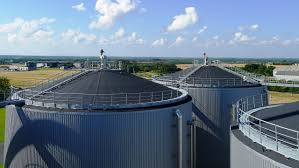Government Announces Mandatory Blending of Compressed Biogas (CBG) in CGD Sector
The Central government has unveiled a roadmap for the mandatory blending of compressed biogas (CBG) in the city gas distribution (CGD) sector, targeting the transportation and domestic segments. The decision was approved by the National Biofuels Coordination Committee (NBCC) during a meeting, aiming to boost the manufacturing and consumption of CBG in India.
Phased Implementation
The mandatory blending will be introduced in a phased manner, commencing in the fiscal year 2025-26. The blending obligation is set at 1% of total compressed natural gas (CNG) and domestic piped natural gas (PNG) consumption for FY26, escalating to 3% for FY27, 4% for FY28, and reaching 5% from FY29 onwards. The Central Repository Body (CRB) will oversee and implement the blending mandate.
Objectives and Implications
The government outlines several objectives for the Compulsory Blending Obligation (CBO), including stimulating demand for CBG in the CGD sector, reducing liquefied natural gas (LNG) imports, saving foreign exchange, promoting a circular economy, and contributing to the net-zero emission target. Petroleum Minister Hardeep Singh Puri anticipates investments worth approximately Rs 37,500 crore and the establishment of 750 CBG projects by FY29.
Biogas Production and CBG Characteristics
Biogas, derived from biomass decomposition, serves as a precursor to CBG production. Sources include agricultural residue, cattle dung, sugarcane press mud, municipal solid waste, and sewage treatment plant waste. CBG, with over 90% methane content, closely resembles commercially available natural gas in composition and energy potential.
Challenges and Past Initiatives
Despite the government’s Sustainable Alternative Towards Affordable Transportation (SATAT) scheme, launched in 2018 with the aim of establishing 5,000 CBG plants by 2023, progress has been slow. The scheme aimed to produce 15 million tonnes of CBG. However, only 48 CBG units have been set up under SATAT, prompting concerns about clarity and procedural hurdles.
Parliamentary Standing Committee Recommendations
The Parliamentary Standing Committee on Petroleum and Natural Gas has raised concerns about the sluggish progress in CBG initiatives. The committee recommended financial assistance for entrepreneurs establishing CBG units and urged public sector oil and gas companies to invest in CBG plants to demonstrate viability and instill confidence among potential investors.
Month: Current Affairs - November, 2023
Category: Environment Current Affairs • International / World Current Affairs








